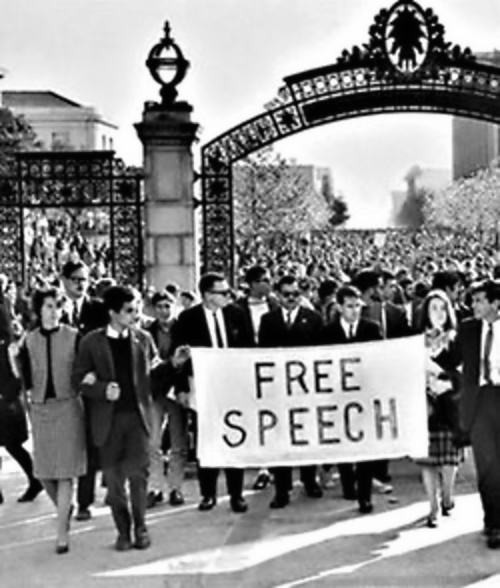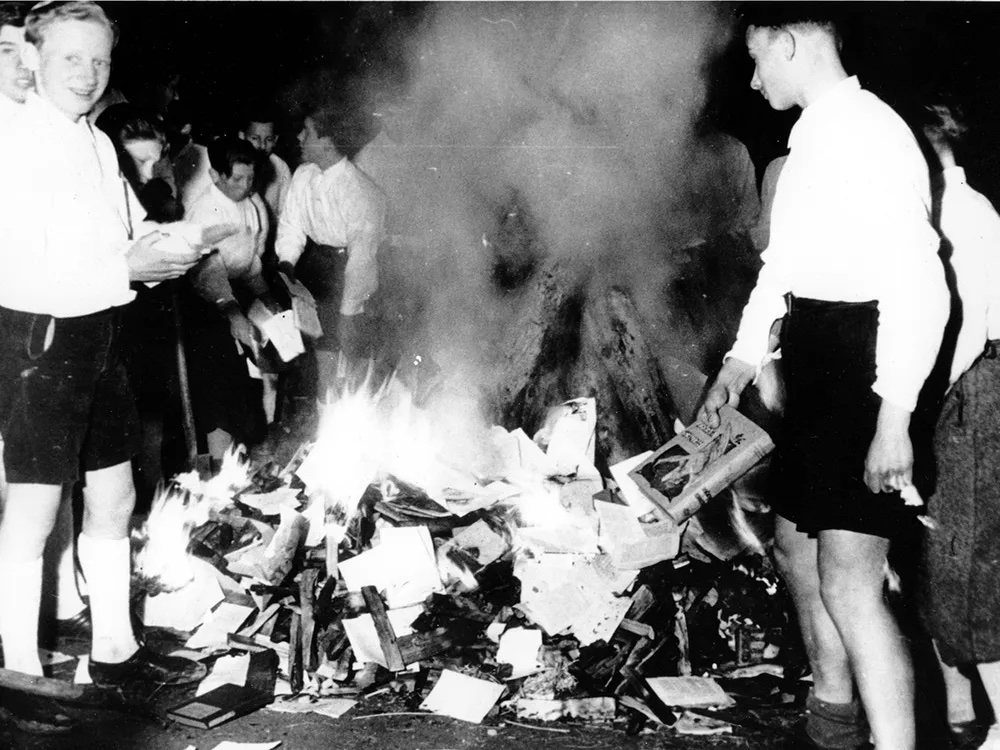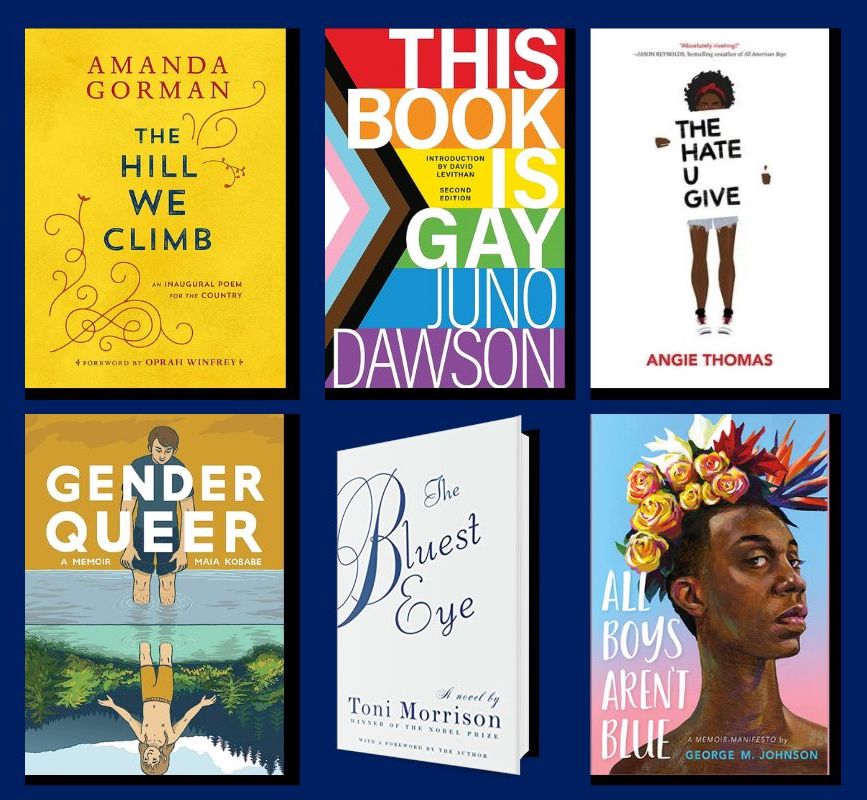- The American Library Affiliation reported a record-breaking variety of makes an attempt to ban books in 2022— up 38 % from the earlier yr. Many of the books pulled off cabinets are “written by or about members of the LGBTQ+ neighborhood and other people of colour.”
- U.S. college boards have broad discretion to regulate the fabric disseminated of their school rooms and libraries. Authorized precedent as to how the First Modification must be thought-about stays obscure, with the Supreme Court docket final ruling on the difficulty in 1982.
- Battles to censor supplies over social justice points pose quite a few implications for training whereas additionally mirroring different politically-motivated acts of censorship all through historical past.
Listed below are your whole questions on e-book bans answered by TC specialists.
Alex Eble, Assistant Professor of Economics and Training; Sonya Douglass, Professor of Training Management; Michael Rebell, Professor of Regulation and Instructional Apply; and Ansley Erickson, Affiliate Professor of Historical past and Training Coverage. (Pictures; TC Archives)
How Do E-book Bans Affect College students?
Previous to the rise in bans, white male youth had been already extra prone to see themselves depicted in youngsters’s books than their friends, regardless of analysis demonstrating how extra culturally inclusive materials can uplift all youngsters, in response to a examine, forthcoming within the Quarterly Journal of Economics, from TC’s Alex Eble.
“Books can change outcomes for college kids themselves once they see individuals who appear to be them represented,” explains the Affiliate Professor of Economics and Training. “What folks see impacts who they change into, what they imagine about themselves and in addition what they imagine about others…Not having equitable illustration robs folks of seeing the complete wealth of the longer term that all of us can inhabit.”
Whereas books have stood within the crossfire of political battles all through historical past, in the present day’s most banned books tackle points associated to race, gender identification and sexuality — main flashpoints within the ongoing American tradition warfare. However past limiting the scope of how college students see themselves and their friends, what are the dangers of limiting info entry?

The coed plaintiffs in Island Timber Union Free Faculty District v. Pico (1982) march in protest of the Lengthy Island college district’s removing of titles reminiscent of Slaughterhouse 5 by Kurt Vonnegut. Whereas the district would finally return the banned books to its cabinets, the Supreme Court docket’s final ruling largely allowed college leaders to take care of discretion over info entry. (Photograph credit score: unknown)
“[Book bans] diminish the standard of training college students have entry to and limit their publicity to essential views that type the material of a culturally pluralist society like the US,” explains TC’s Sonya Douglass, Professor of Training Management. “It is a battle over the soul of the nation in some ways; it is about what we educate younger folks about our nation, what we decide to be the reality, and what we imagine must be included within the curriculum they’re receiving. There’s rather a lot at stake there.”
Materials stripped from libraries and curriculum embody works written by Black authors that debate police brutality, the historical past of slavery within the U.S. and different points. As such, Black college students are amongst those that could also be most affected by bans throughout the nation, however — in Douglass’ view — that is merely one of many more moderen disappointments in an extended historical past of Black communities being let down by public training — chronicled in her 2020 e-book, and additional supported by a 2021 examine from Douglass’ Black Training Analysis Middle that exposed how Black households misplaced belief in faculties following the pandemic response and homicide of George Floyd.
In that historic and cultural context — at the same time as students like Douglass work to implement Black research curriculums — the failure of colleges to correctly combine Black experiences into the curriculum stays huge.
“We wish to be sure that youngsters be taught the reality, and that we give them the capability to deal with truths that could be uncomfortable and troublesome,” says Douglass, citing Germany for example of a nation that has prioritized curriculum that highlights its personal injustices, such because the Holocaust. “This second once more requires us to take inventory of the truth that racism and bigotry nonetheless are a difficult a part of American life. Once we higher perceive that historical past, after we see the patterns, after we acknowledge the supply of these points, we will then do one thing about it.”

Starting in 1933, members of Hitler Youth frequently burned books written by outstanding Jewish, liberal, and leftist writers. (Photograph: World Historical past Archive / Alamy Inventory Photograph, dated 1938)
Why Is Banning Books Authorized?
Whereas authorized battles over e-book censorship in faculties persistently unfold at native ranges, the wave of e-book bans throughout the U.S. surfaces a important query: why hasn’t the US had extra definitive authorized closure on this problem?
In 1982, the U.S. Supreme Court docket issued a noncommittal ruling that continues to maintain college and library books within the political crosshairs greater than 40 years later. In Island Timber Union Free Faculty District v. Pico (1982), the Court docket deemed that “native college boards have broad discretion within the administration of faculty affairs” and that discretion “should be exercised in a way that comports with the transcendent imperatives of the First Modification.”
However what does this imply in follow? In these sorts of circumstances, the applying of the First Modification hinges on the existence of proof that books are banned for political causes and violate freedom of expression. Nonetheless, with out extra express steerage, college boards typically make choices that prioritize “neighborhood values” first and entry to info second.

Whereas in the present day’s latest e-book bans most ceaselessly embody matters associated to racial justice and gender identification (pictured above), different ceaselessly focused titles embody Extraordinarily Loud & Extremely Shut, The Kite Runner and The Handmaid’s Story. (Cowl pictures courtesy of: Viking Books, Sourcebooks Hearth, Balzer + Bray, Oni Press, Random Home and Farrar, Straus and Giroux).
“America historically has prided itself on native management of training — the truth that we’ve got energetic citizen and parental involvement in class board points, together with curriculum,” explains TC’s Michael Rebell, Professor of Regulation and Instructional Apply. “We have now, whether or not you wish to name it a conflict or a balancing, of two authorized concerns right here: the power of kids to freely be taught what they should be taught to have the ability to train their constitutional rights, and this conventional proper of the varsity authorities to find out what the curriculum is.”
So would college students profit from extra nationwide and uniform authorized steerage on e-book banning? On this political local weather, Rebell attests, the dangers very properly may outweigh the potential rewards.
“Your native establishments are —in principle — defending the values you imagine in. And if any person in Washington had been going to say that we could not have books that speak about transgender rights and issues in New York libraries, we might go loopy, proper?” mentioned Rebell, who leads the Middle for Instructional Fairness. “So I am unable to think about that on this polarized surroundings, folks can be in favor of federal legislation, no matter it mentioned.”
Why Do Waves of E-book Bans Hold Occurring?
Historians date censorship again all the best way to the earliest look of written supplies. Historical Chinese language emperor Shih Huang Ti started eliminating historic texts in 259 B.C., and in 35 A.D., Roman emperor Caligula objected to the beliefs of Greek freedom depicted in The Odyssey. In quite a few waves of censorship since then, e-book bans have persistently manifested the battle for political management.
“We have now to consider [the current bans] as a part of an extended sample of fights over what’s in curriculum and what’s stored out of it,” explains TC’s Ansley Erickson, Affiliate Professor of Historical past and Training Coverage, who frequently prepares native lecturers on how you can combine Harlem historical past into social research curriculum.
“The USA’ historical past, since its inception, is stuffed with makes use of of curriculum to form politics, the economic system and the tradition,” says Erickson. “This can be a actually dramatic second, however the curriculum has all the time been political, and other people in energy have all the time been utilizing it to emphasise their energy. And traditionally marginalized teams have all the time challenged that energy.”
One instance: when Latinx college students had been forbidden from talking Spanish of their Southwest faculties all through the twentieth century, they labored to take care of their traditions and tradition at house.
“These bans actually matter, however one of many methods we will think about a response is by trying again at how folks created areas for what wasn’t given room for within the classroom,” Erickson says.
What Might Occur Subsequent?
American faculties stand at a important inflection level, and amid this heated debate, Rebell sees civil discourse at college board conferences as a paramount start line for any form of decision. “This mounting disaster can function a motivator to convey folks collectively to attempt to take care of our variations in respectful methods and to see how a lot frequent floor could be discovered on the significance of exposing all of our college students to a broad vary of concepts and experiences,” says Rebell. “Carve-outs can be discovered for permitting dad and mom who really feel actually strongly that sure content material is inconsistent with their non secular or different values to exempt their youngsters from sure content material with out limiting the choices for different youngsters.”
However college students, households and educators even have the chance to talk out, explains Douglass, who expressed concern for a way her personal daughter is affected by e-book bans.
“I’d wish to see a groundswell motion to reclaim the nation’s dedication to training — to acknowledge that we’re experiencing rising pains and modifications by way of what we stand for; and whether or not or not we wish to reside as much as the democratic perfect of freedom of speech; totally different concepts within the market, and a dedication to civics training and political participation,” says Douglass.
As publishers and librarians file lawsuits to push again, college students are additionally mobilizing to protest bans — from Texas to western New York and elsewhere. However as extra native battles unfold, larger points stay unsolved.
“We have to have a dialog as a nation about therapeutic; about having the ability to confront the previous; about receiving an apology and starting that means of reconciliation,” says Douglass. “Till we deal with that head on, we’ll proceed to have a lot of these battles.”






























































